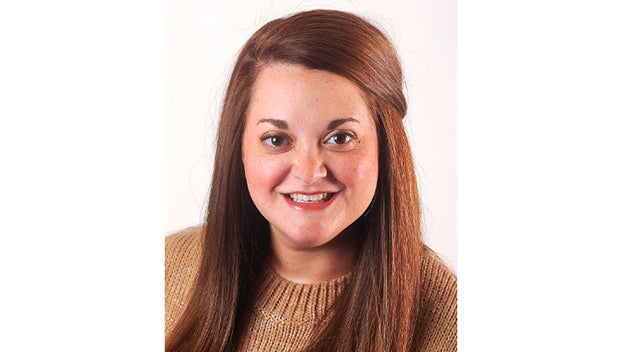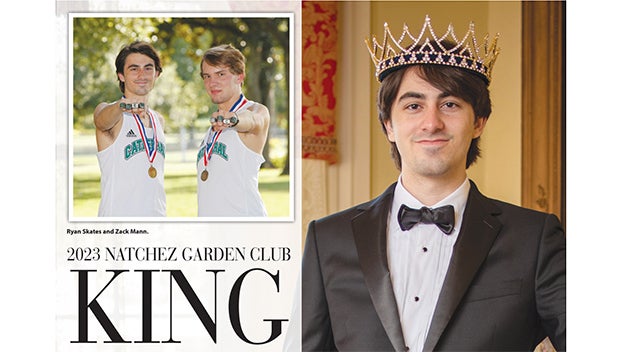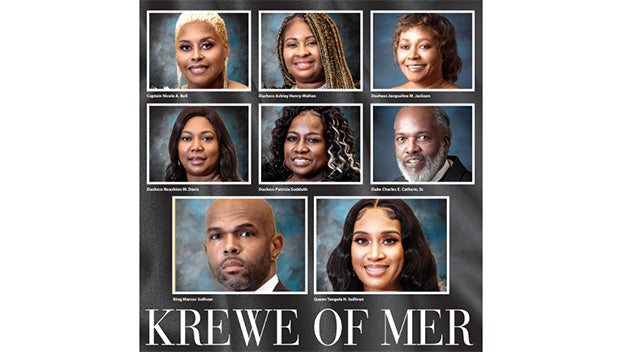Food, family traditions go hand-in-hand
Published 11:07 pm Saturday, November 6, 2021

- Jennie Guido writes a weekly column for The Natchez Democrat.
|
Getting your Trinity Audio player ready...
|
By Jennie Guido
Like my friend John Taylor likes to remind me, “Mississippi is not a state. It’s just a small town.” In the small town of Natchez, everyone knows everyone and remembers each other’s family traditions for generations to come.
After receiving a note from a reader a few weeks ago about family chili recipes, we started to exchange memories of old Natchez favorites including her family’s Italian Kitchen and my great grandmother’s Home Bakery. It made me think about all of those downtown restaurants of years past that you hear so much about.
The original Italian Kitchen was owned by Thomas Guercio Sr. who rented it to Elbert Butler Sr. during WWII. His granddaughter, Mary Shea, reached out; and after several emails about chili, we found out just how small of a world Natchez is. Mary remembers going to Home Bakery when she was in town to visit her grandparents and was curious for us to share recipes.
She was quick to jump on the phone with her family members and get the history behind the Italian Kitchen to share with me. “It was a true family-owned restaurant run by Elbert Butler, Sr. in the 1940s. He and his then teenage daughters helped run the place while his wife Margaret stayed home with their younger children,” Mary said. The Butlers were cooking and serving hundreds of hungry patrons including many soldiers on the weekends from a nearby military base looking for a nice, Southern, home cooked meal.
Mary’s mother, Marion Rose Peters, shared many of her memories of the Italian Kitchen before she passed away. “Mama told me she would cook hamburgers on a grill that faced a window, and she would get embarrassed when people would stand outside watching her cook, especially the young, handsome soldiers,” Mary told me.
John Allen Butler, Mary’s uncle, told her that he was too young to work in the restaurant, but he was determined to be a part of the family business. “When he was about 5 or 6 years old, he insisted on carrying 2 plates of spaghetti and meatballs on each of his arms like his sisters. He said that was the one and only time he served the customers there,” Mary added. “He chuckled and said ‘one of the plates slid right off of my arm along with the entire plate of spaghetti and made a big mess in the middle of the table.’”
Mary’s uncle, Dickie Butler told her about the long hours his father put in at work except for Sundays. After going to Mass together, “his older sisters would get out the fine china for their traditional Sunday dinner, which would usually be a beautiful cooked roast that would become a soup later in the week to feed their family of 10,” Mary shared. Dickie’s wife, Gloria, still makes the traditional Sunday dinner complete with the fine China.
Luckily, they shared their family’s spaghetti and meatball recipe with me.
Another of those Natchez legends is none other than Tops Restaurant and Cafeteria owned and operated by Noland Biglane and family. “In 1953, my father, Noland E. Biglane, and his brother-in-law, Joe Francis, bought an existing restaurant from my Uncle D.A. Biglane – Tops Grill,” Pat Biglane shared. “Tops was located on the 400 block of Main Street, and it was moved across the street to a larger location and renamed Tops Restaurant & Cafeteria.”
A few years into the business, Papa Noland became the sole owner, and, Pat added, “My mother and father ran the restaurant for the next 20 years with eight children who all worked at some time in the restaurant.”
Working after church on Sundays and after school, the Biglane kids learned many lessons on customer service and what hard work means. “A restaurant is a great place to learn how to take care of the customer. No matter what field of work we were going into, the restaurant business was a good training ground for learning how to work with people,” he said. “I bused tables a good bit, but I must not have done a very good job because I only received a total of $1.10 in tips to clean off the tables.”
Once businesses started to move from downtown and Tops was closed, Noland Biglane went into the oil business in order to continue to support his family. “Dad was proud of the fact that all eight children graduated with a college degree,” Pat shared. “My dad had a high school education, military service, and several years of restaurant experience that gave him the ability to open his own restaurant. I do miss Tops, and I will treasure the memories we had working there.”
Personally, our family has been in the restaurant business a couple of times here in town. My great-grandmother, Bena Guido, owned and operated the original Home Bakery on Commerce Street in what is now the drive through for Home Bank. She was known for her bread (which my grandfather, T.J. Guido, delivered to locals before school each morning), petit fours, and those ham-burgers. My mom can remember going there growing up long before she became a Guido to buy jelly-roll cakes. “There was always a ham baking in the kitchen,” she told me. “It would later be chipped up for those ham-burgers.”
We don’t have many recipes from Home Bakery, just one in fact. My Nannie, Doris Guido, continued making the potato salad Bena would serve to customers. What I do have that I use whenever I’m baking a chocolate pie for my neighbors at Christmas or mixing up some Pinterest recipe to try out on someone is a yellow Pyrex mixing bowl from Home Bakery. Maybe Bena’s cooking skills can be passed down through kitchen ware versus recipes.
Later, my parents owned the Bellemont Shake Shop for a dozen years while my sister and I were in high school and getting through college. They like to remind us just how many burgers they flipped and shakes they made to get us through Delta State. While the hours were tough and the work was endless sometimes, none of us would trade those summers spent behind the counter perfecting Oreo milkshakes and fried dill pickles.
Those were the good ole days.
Butler Family Spaghetti and Meatballs
Trinity:
2 stalks celery, chopped
1 green bell pepper, chopped
2 stalks green onion, chopped
1 white onion, chopped
Sauté in olive oil for about 15 minutes on medium to low heat in a large pot.
Sauce:
2 cans diced tomatoes
5 cans Contadina tomato sauce
1 tablespoon garlic powder
1 tablespoon Cavender’s Greek seasoning
1/2 tablespoon oregano
1/2 tablespoon Italian seasoning
Small jar mushrooms
Sprinkle of parsley flakes
Add ingredients to the trinity and simmer on low heat for 2 1/2 hours stirring occasionally every 20 minutes. Add 2 tablespoons of sugar after the first hour and a half.
Meatballs:
2 1/2 pounds ground beef
1 small white onion, diced
1 tablespoon parsley flakes
1 tablespoon Cavender’s Greek seasoning
1 tablespoon Season All
1 tablespoon garlic powder
1 1/2 cups Progresso Italian bread crumbs
2 eggs
Mix with hands in a large bowl until blended, but don’t over blend or meat will be tough. Shape into balls a bit larger than a golf ball. Bake at 350 degrees for 45 minutes. Drain on a paper towel and add to sauce.
Serve with cooked spaghetti noodles of your choice, Parmesan cheese, French bread, and a salad. Makes 15 servings.



